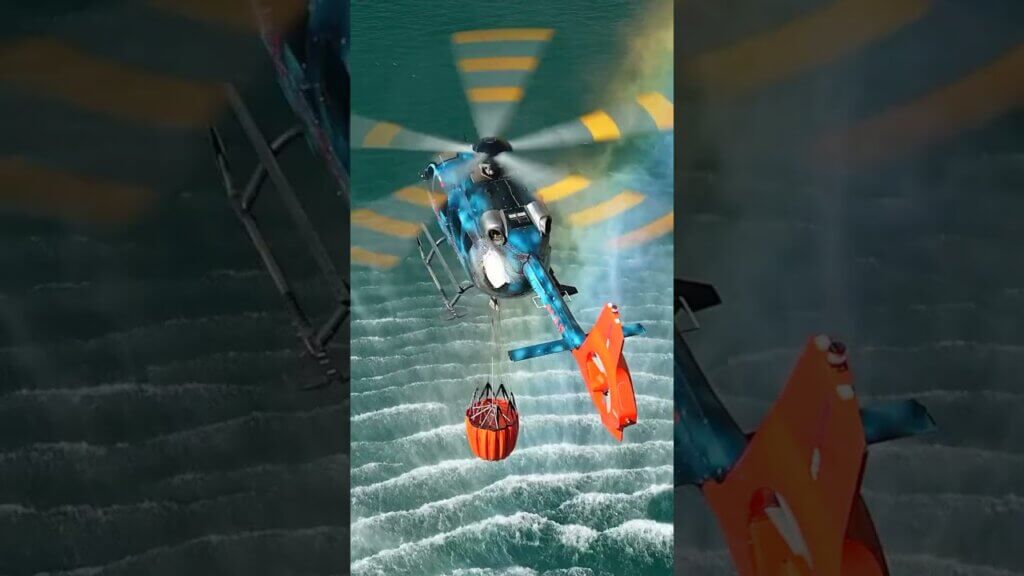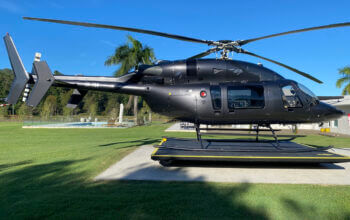Joby Aviation’s four-passenger prototype has been awarded the first airworthiness approval by the U.S. Air Force of an electric vertical takeoff and landing (eVTOL) aircraft. Beta Technologies is close behind, expected to receive a similar approval in the first quarter of next year and begin flying missions for the military.

Agility Prime, the Air Force’s effort to both leverage and reduce risk associated with commercial investment in eVTOL technology, intends to support more rapid certification of these aircraft by the Federal Aviation Administration and begin acquiring eVTOLs for military use as early as 2023. The program launched its “Air Race to Certification” in February and today has 19 entrants across three mission categories, with six flying partners.
Two of those flying partners, California-based Joby Aviation and Vermont-based Beta Technologies, plan to begin flying missions for the U.S. military next year.
“This coming quarter, we’re going to be flying operational missions between Springfield, Ohio, and Plattsburgh Air Force Base,” said Kyle Clark, CEO of Beta Technologies, presenting a map of charging stations the company has broken ground on that runs from Vermont, through New York, to Ohio.
Recognizing the tremendous commercial investment in eVTOL aircraft and related technologies — and present-day security concerns that stemmed from the military’s failure to foster a successful small drone industry in the United States — Agility Prime seeks to use the considerable resources of the Air Force to smooth the path of leading aircraft developers to certification and deployment.
“Through [the Defense Innovation Unit] and our partnership with Agility Prime, we have access to a range called Fort Hunter Liggett, where we’re able to very safely test our aircraft, and it’s been a transformative capability for us that we’re very grateful for,” said JoeBen Bevirt, founder and CEO of Joby Aviation.
For the Air Force, Agility Prime is also a test-bed for a new approach to collaboration with industry, emphasizing rapid contracting and procurement to move at a pace more familiar to startups than existing defense primes.
“Everybody online here knows how incredibly efficient the acquisition process was here,” said Clark. “No BS — what are you going to do, we’re going to take what you guys are able to do and make that even better. And that simple innovation has completely transformed the pace at which we’re able to do things.”
Beta’s collaboration with Agility Prime has included airworthiness work, ground vibration tests, cyber and digital engineering elements, according to Clark, and without the collaboration “we would be left with shorter tentacles out into the networks that we know presently.”
The Pentagon plans to spend roughly $100 million annually to support flight tests and assess Air Race participants such as Joby and Beta, according to the Wall Street Journal — an amount likely to pique the interest of large defense contractors. Numerous aerospace and automotive leaders — including Boeing, Bell, Airbus, Embraer and Hyundai — are already exploring involvement in the eVTOL space to various degrees; the Air Force’s level of commitment could add other defense stalwarts to those ranks.
“In my opinion, electric aviation is the inevitable future of aviation,” said Clark. “It can’t not be. The ability to go vertical, the flexibility, the cost savings; it’s been used in all other forms of transportation, and now we’re here in aviation and we get to use it again.”
Beta and Joby also broke ground during the virtual event on a co-located simulator and vehicle charging facility near Springfield Airport, where the two companies will continue their testing and engagement with Air Force personnel as they develop their aircraft.
For the Pentagon, the promise of eVTOL aircraft is largely about flexibility and cost reduction associated with the simplicity of the electric propulsion revolution — an appealing pursuit for a military beset with ballooning sustainment costs and fleets that rarely meet their mission readiness goals.
“Today’s event supports the broader goal of creating a new industry and sparking a revolution in aviation, fostering our nation’s innovation engine,” said U.S. Air Force Brig. Gen. Heather L. Pringle, commander of the Air Force Research Laboratory. “Previous transformations in aviation generated spectacular leaps in performance, but they also came with increased cost that limited quantities in production. Flying cars are truly quite the opposite. Given their mechanical simplicity and high degree of automation, the cost for purchasing and maintenance could be an order of magnitude lower.”









